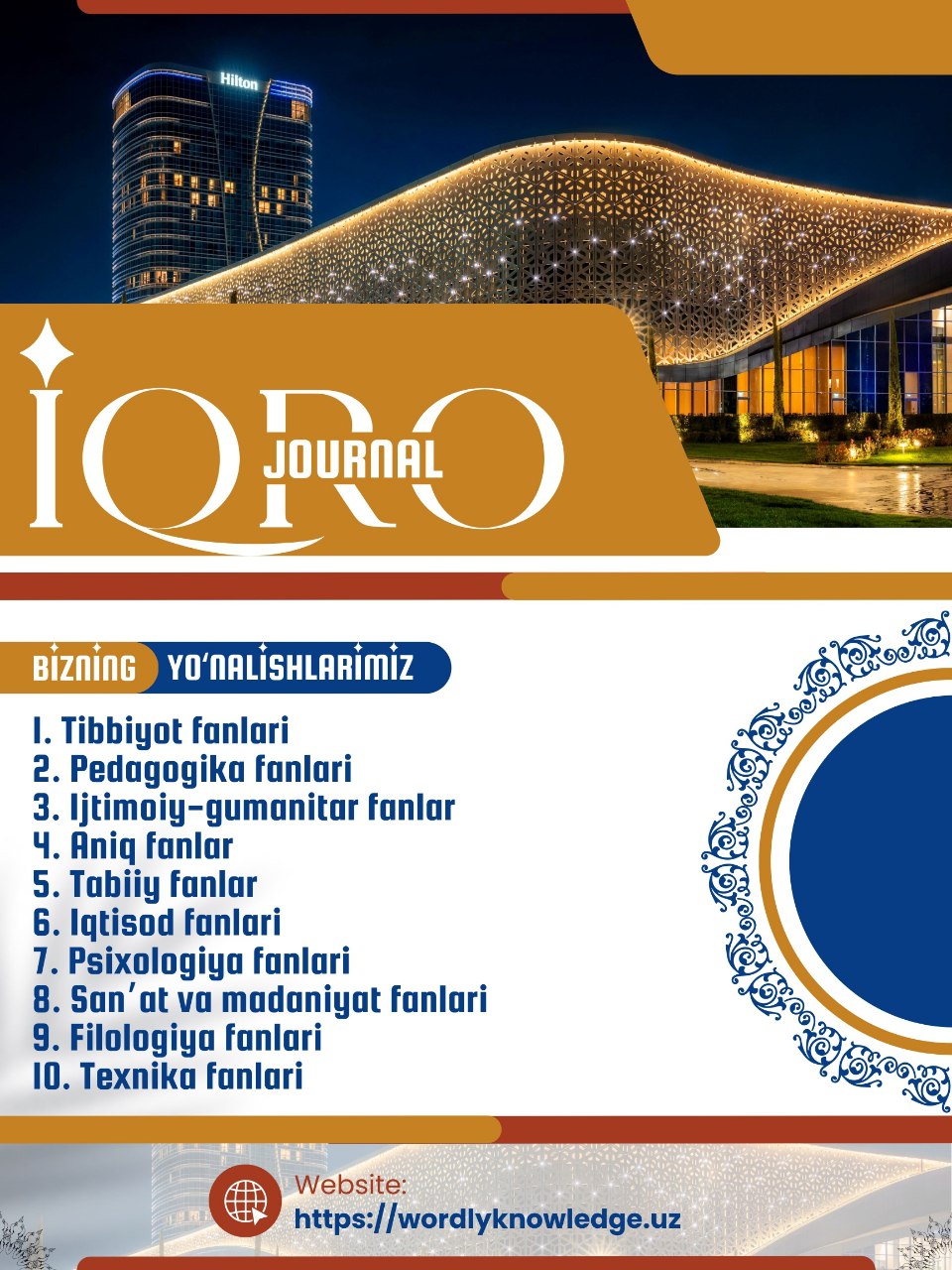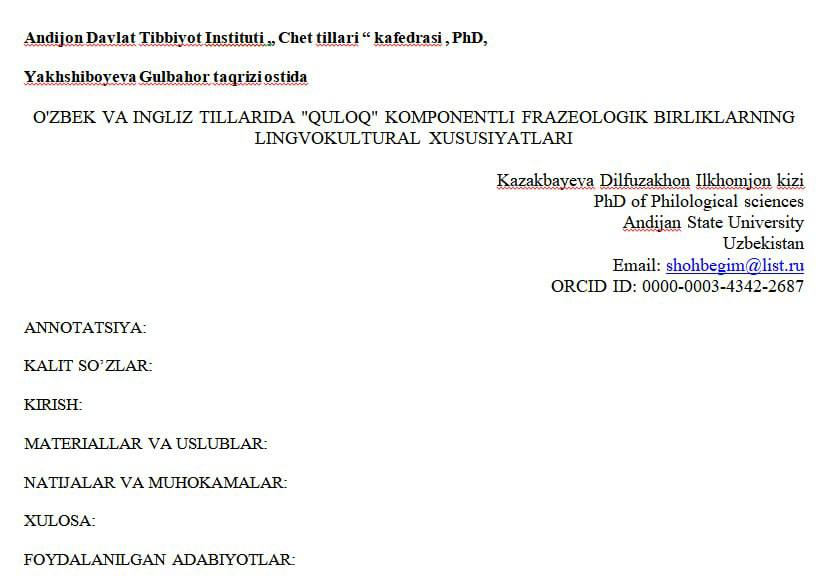FEATURES OF LEARNING GERMAN LANGUAGE IN GROUPS AS A SECOND FOREIGN LANGUAGE AFTER ENGLISH OR RUSSIAN
Keywords:
German language learning, a second foreign language, English, Russian, language acquisition, cognitive challenges, grammatical complexity, pedagogical strategies, technology in language teaching, communicative approach, task-based learning, CLIL.Abstract
This article examines the unique features of learning German as a second foreign language after English or Russian, focusing on cognitive, psychological, and pedagogical aspects. The article explores the challenges and opportunities faced by learners due to the differences in language structure, grammar, and phonetics between German, English and Russian. Special attention is given to the impact of prior language knowledge, specifically English and Russian, on the learning process. The paper also discusses various methodological approaches to teaching German, such as the communicative approach, task-based learning, and Content and Language Integrated Learning (CLIL), while emphasizing the role of modern technology in enhancing language acquisition. The study concludes that a tailored, technology-enhanced approach can help learners overcome difficulties in learning German and foster effective language acquisition.
References
1.Coyle, D., Hood, P., & Marsh, D. (2010). CLIL: Content and Language Integrated Learning. Cambridge University Press.
2.Ellis, R. (2008). The Study of Second Language Acquisition (2nd ed.). Oxford University Press.
3.Kellerman, E. (1995). Crosslinguistic Influence in Second Language Acquisition. Routledge.
4.Odlin, T. (1989). Language Transfer: Cross-Linguistic Influence in Language Learning. Cambridge University Press.
5.Richards, J. C., & Rodgers, T. S. (2014). Approaches and Methods in Language Teaching (3rd ed.). Cambridge University Press.
6.Ringbom, H. (2007). Crosslinguistic Similarity in Foreign Language Learning. Multilingual Matters.
7.Stockwell, G. (2012). Computer-Assisted Language Learning: Diversity in Research and Practice. Cambridge University Press.
8.Willis, J. (1996). A Framework for Task-Based Learning. Longman.
9.Zaleska, M. (2010). The Influence of Russian on the Acquisition of German as a Foreign Language. University of Warsaw Press.














